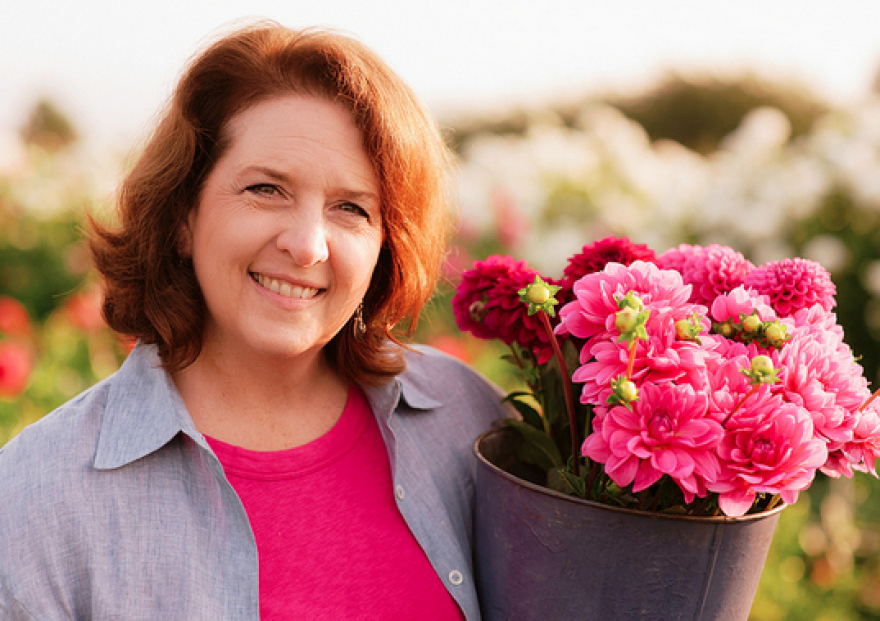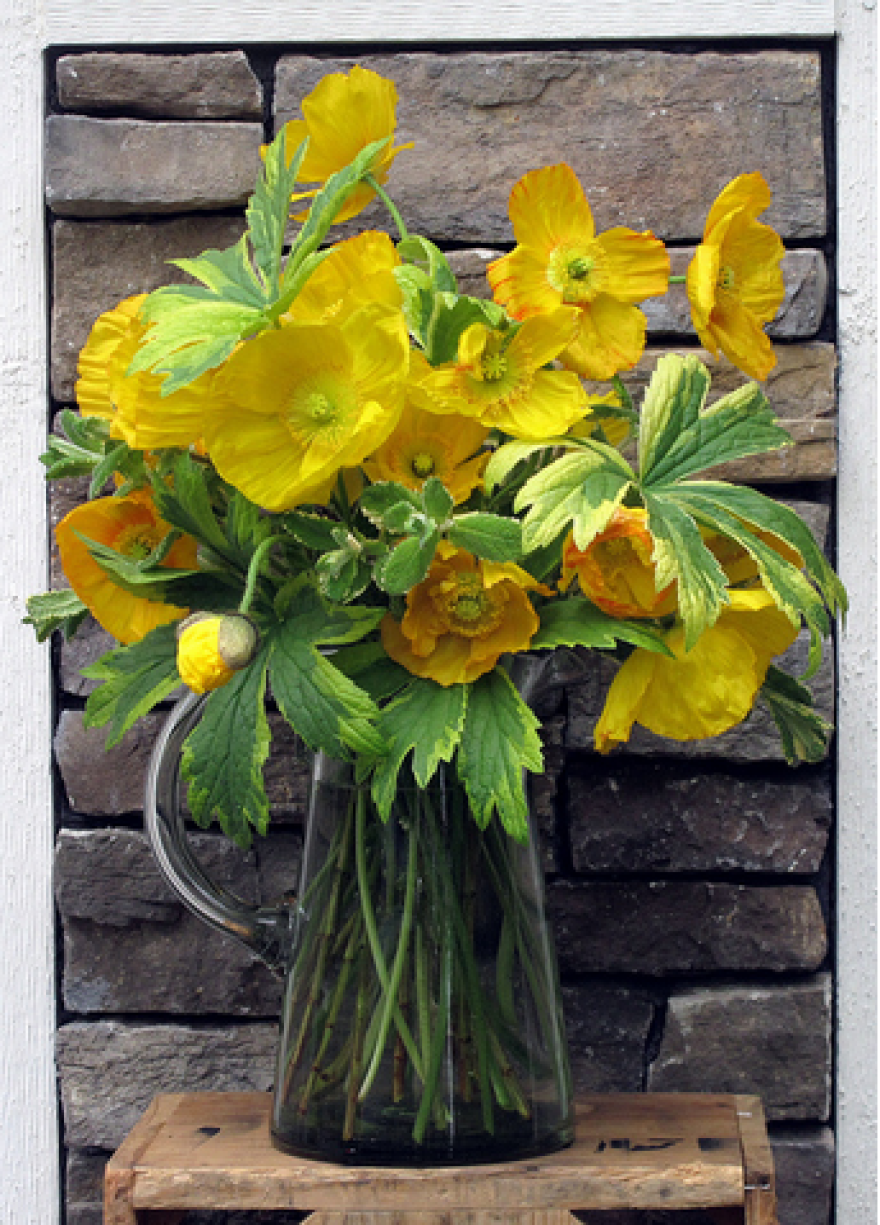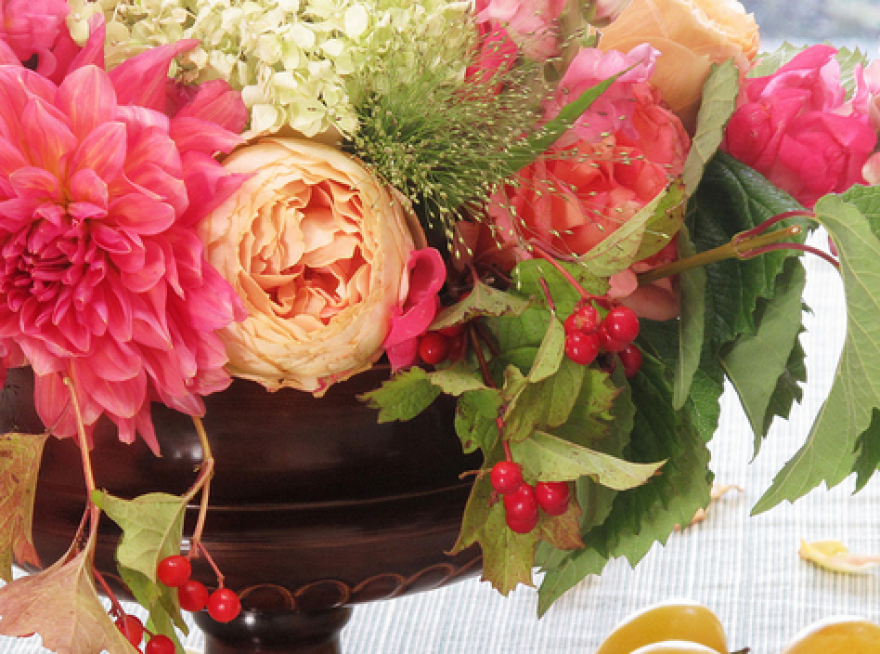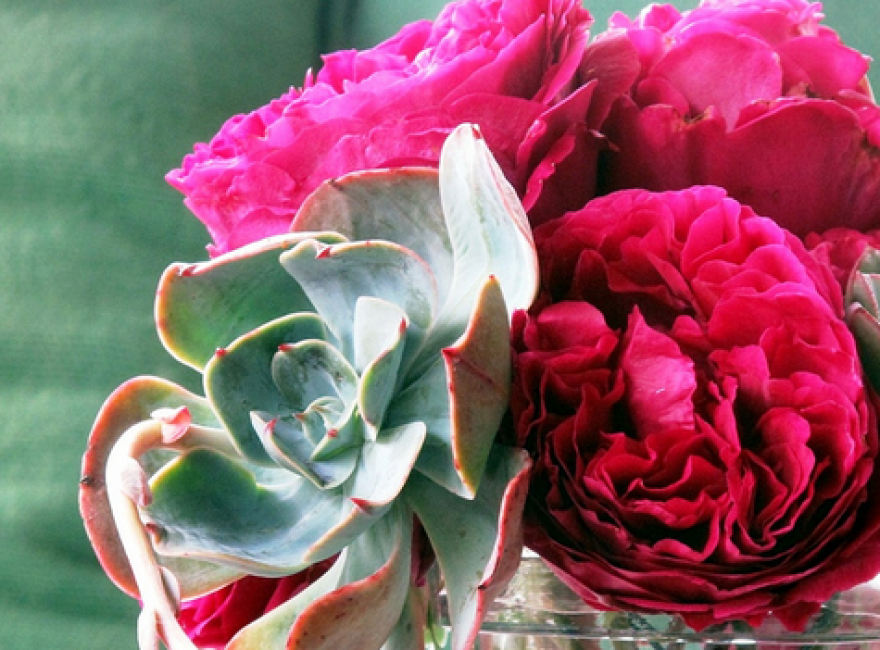Like many other holidays, Mother’s Day has become quite commercialized. Along with a Hallmark card often comes a perfect-looking bouquet of flowers that have traveled thousands of miles to get to your front door.
But for those who long for flowers with a local tie and fewer pesticides, there are other options.

More and more florists, designers, and event planners in the Northwest are using sustainably-produced cut flowers from local farms, says Debra Prinzing, a longtime Seattle garden writer who has written two books on the subject, “The 50 Mile Bouquet” and “Slow Flowers.”
Prinzing says consumers have shown a growing desire to know where their flowers come from.
“It’s kind of hard for people who think that they are giving a beautiful gift to a loved one to even understand that maybe they’re damaging the environment by doing so,” she said.
Most sold flowers are not local, not organic

Eighty percent of flowers sold in the U.S. are imported, says Prinzing.
“It’s just an interesting contrast,” she said, “that here’s something so ephemeral, and we’re putting it on a jumbo jet and shipping it from another continent, to Miami, putting it on a big truck, trucking it across the country to Seattle, and seeing it at our supermarket when in our own backyard, we have such amazing beauty, and fresh sustainably-grown flowers.”
And because there is no labeling requirement for flowers, most consumers don’t know the flower come from countries with loose or no pesticide-use regulations.
Another result of heavy use of pesticides overseas, says Prinzing, is that it is difficult to find an imported flower that is truly organic, or even nearly as wholesome as their locally-grown counterparts.
“Even if flowers are labeled eco-something, coming into the U.S., they have to be drenched in fumigants, because the U.S. customs has only one concern in general, and that’s to keep invasive pests out of our country for protecting food crops,” Prinzing said.
A new local label: ‘By the Bunch’

As of this week, consumers in the Seattle area can look for locally-grown flowers that are certified by a third party as salmon-safe. Called By the Bunch, it is the work of a cooperative of about 20 small farmers in Oregon, Washington and Alaska that formed two years ago.
“It’s called the Seattle Wholesale Growers Market. It’s down in the Georgetown neighborhood of Seattle. And their tagline is ‘farm to florist.’ They’ve kind of created their own distribution channel, cutting out the middle man,” said Prinzing.
A specialty crops grant from the U.S. Department of Agriculture enabled the farmers to form their own brand and connect directly with local stores.
“And it’s exciting,” said Prinzing. “It’s like they’re just taking charge of their own destiny to create a venue for selling their flowers to the public.”
Members of the general public can buy directly from the Seattle Wholesale Growers Market for a $5 fee on Fridays from 10 a.m. to 2 p.m. Visitors to the market can also get a list of vendors who use their flowers in sustainable designs.
The price of sustainably-grown flowers

Sustainably-grown flowers can cost slightly more to buy as they cost more to produce, but they also last longer, says Prinzing.
“Those flowers are so much fresher and have been grown with a lot of care and they haven’t been in a box on an airplane for five days,” she said. “So it’s sort of a mind-shift. We have to start saying we’re willing to pay more—maybe 10 to 25 percent more—for locally-grown flowers. But some, you’ll find, are the same price as imported.”
Degrees of sustainability

Prinzing says she prefers to avoid non-local options for sustainably-grown flowers.
“To me, there’s degrees of sustainability. Your most eco-friendly flower is going to come from your own garden. I call that the five-step bouquet. You’re just walking out your back door and cutting from your yard.
“And then the next level would be supporting a flower farmer that you might meet at the farmers market. Or in summer, there’s you-pick farms that are really fun to visit.
“And then the third level is supporting American flower farming. There’s some online companies, especially in California, that kind of act as what I call the anti-FTD. They’re shipping organically-grown flowers from one American farm to your beloved recipient somewhere else in the country.
“And then the last resort for me, if I do have to buy imported, I do want to see that they have some kind of eco-labeling on them," she said.
Debra Prinzing will be signing books and demonstrating Slow Flower arrangements on the evening of Friday, May 10 at Terra Bella Organic Flowers in Seattle’s Phinney Ridge neighborhood during the Phinney Art Walk. Terra Bella's seasonal CSA bouquets will be available by subscription or cash-and-carry at the event.







